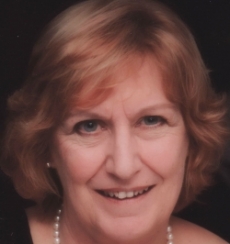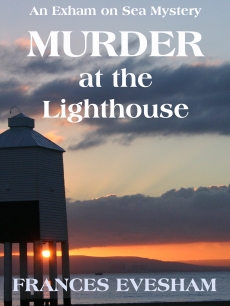| This week I am delighted to welcome Frances Evesham back to my blog to talk about the writing 'rules' that work for her. Frances has had two Victorian mysteries - An Independent Woman and Danger at Thatcham Hall - published by The Wild Rose Press and she has recently published a short crime novel called Murder at the Lighthouse. If you are a reader of cosy crime - and I am; I love it - I can tell you that this one falls into not only the culinary category but also the animal category. You can find out more about it at the end of the blog. |
| In the meantime, Frances, tell us about your writing rules. |
 |
| When I was at school, our English teacher introduced a great writing project. We imagined we were all abandoned on an imaginary island. Every week we each wrote a short piece on an aspect of the island; an adventure or a description. The artistic drew pictures, the scientists analysed the rocks of the island, the botanists described flowers and the biologists, animals. | ||
| The best story each week was read aloud. | ||
| I struggled to write something realistic. I dismissed every idea of fantastical creatures or tales of daring as unlikely and illogical. If it wasn't likely to happen, I didn't want to write it. | ||
| My stories were never chosen. | ||
| We came to the final week. I threw caution to the wind and wrote a highly illogical method of escaping from the island. It involved making a bonfire in the shape of a giant SOS, setting fire to it and waiting for a plane to come along. Which it did, of course, in the nick of time, just as the food ran out and a character was on the verge of dying of blood poisoning. | ||
| I handed it in, embarrassed. It was all so unrealistic. Who would believe it? | ||
| Well, they loved it. The story was chosen as the best and was read to the school, and I learned what I believe to be my greatest lesson on writing. | ||
| Let your imagination soar. | ||
| People want to believe in your stories. They long to be transported away from the humdrum world of reality into make believe. Go beyond the everyday and the sensible and your reader will come with you, so long as he or she believes in your world. | ||
| That brings me to a second lesson. If you want to take liberties with time, place or reality, first make sure you know everything about your setting. I write two kinds of stories. One series is set in Victorian England, the other in a present day small seaside town called Exham on Sea. | ||
| I live in a small seaside town in Somerset, so I know a great deal about that setting. I never go out without my notebook, borrowing snippets of conversation or describing a new or eccentric acquaintance. | ||
| I've spent many happy hours reading about Victorian England. I call it researching, but it's rest and relaxation to me. I'm not a great one for lengthy descriptions in my writing, and I tend to skip over descriptive bits when I read other people's stories, but because I've read so much about Victorian England, it seeps into the text. | ||
| So my second lesson for writing is: | ||
| Know the setting like your own home. | ||
| My other tips are about the writing process itself. Susanna and I have already talked in the comments to a previous post about tearing up the first 50 pages of the first draft, as it's probably back story. This process hurts, but it gives you the freedom to start writing, knowing it doesn't matter if it's nonsense, because it's for you, not for the reader. If, by a miracle, the first 50 pages turn out to be brilliant, by all means keep them. That hasn't happened to me yet.
| ||
| If you know your back story, it will pop up in an odd sentence here and there, when necessary. | ||
| So here's the next lesson: | ||
| Get rid of the back story | ||
| Here's a way to keep going when you're stuck. Every day, you sit at your desk and stare at the blank space following the words you wrote yesterday. You've dusted the shelves, made coffee, tidied your desk. There's no more you can do to procrastinate. You poise your fingers over the keyboard and... nothing! | ||
| Try reading yesterday's work aloud. | ||
| Not all of it, just the last page. That takes you into the story far more deeply than reading the words in your head. It's so easy to skim over familiar sentences in silent reading. Speaking aloud forces you to concentrate on every word. By the time you've finished, the next sentence will be jumping out of your brain!
| ||
| So, from bitter experience of much embarrassment, my final lesson is this: | ||
Close the door so no one hears you talking to yourself. | ||
Frances's links: Website: http://francesevesham.com/ Twitter: https://twitter.com/FrancesEvesham Facebook: https://www.facebook.com/frances.evesham Amazon author page: http://www.amazon.co.uk/Frances-Evesham/e/B004Q8KWX2
| ||
Amazon link to Murder at the Lighthouse on Kindle |  |


Make A Comment
Comments (12)
The tip about letting your imagination soar really spoke to me, and is particularly important for those who also write for a day job. My first stories were almost entirely devoid of emotion because I'd spent so many years writing for corporate and academic audiences, in contexts where emotion and imagination were not part of the equation. To write fiction, I had to rediscover my imagination which was liberating and scary in equal measure.
Great to have Frances back on the blog for another enjoyable post.